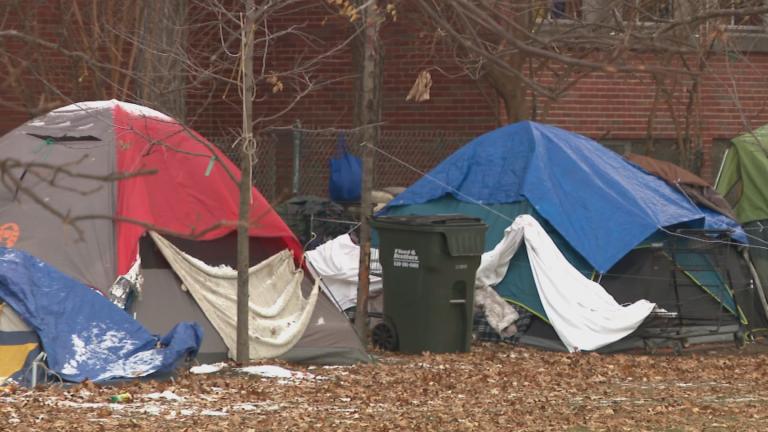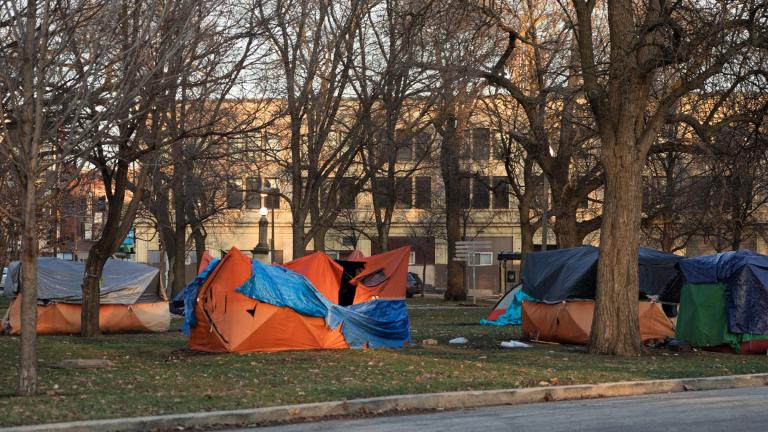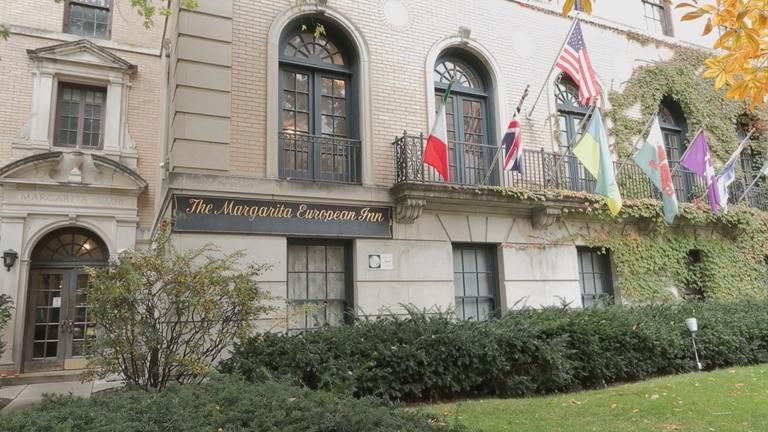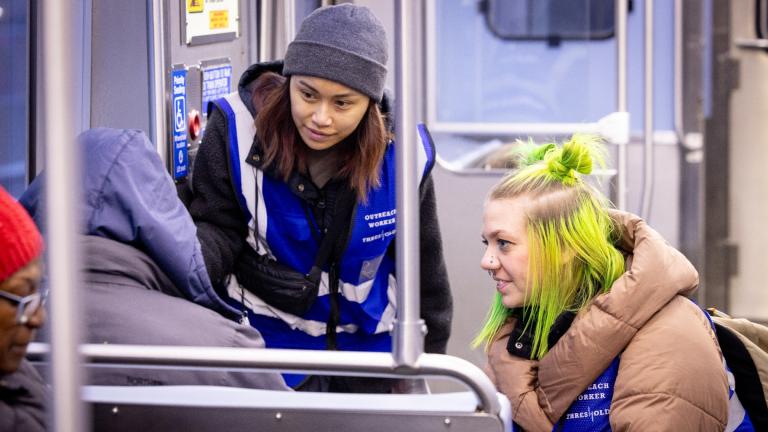This story is part of WTTW’s Firsthand initiative exploring poverty in Chicago.
Humu Issifu’s 5-year-old daughter is interested in taking swimming lessons and dance classes. Issifu says if she had extra money, she’d enroll her in recreational activities.
Issifu is a caregiver for her two children under age 6 in the Washington Park neighborhood on Chicago’s South Side. If two bills in Illinois’ General Assembly pass, Issifu could be eligible for additional funds through the earned income tax credit. The program, which operates at both the state and federal level, offers eligible low- to moderate-income families tax relief, and is seen by many as an anti-poverty program.
“EITC is extremely effective in putting cash into people’s pockets, but also is one of most well known anti-poverty tools that we do have, both in the state and nationally,” said Harish I Patel, director of Economic Security for Illinois. The organization is leading a coalition of over 30 groups working to expand the earned income tax credit.
Current eligibility at the state level is determined by that at the federal level.
“The state just piggybacks off of that by saying if you got the federal credit you get 18% of that for state purposes,” said Lisa Christensen Gee, the director of special initiatives at the Institute of Taxation and Economic Policy.
 (WTTW News via CNN)
(WTTW News via CNN)
The credit offsets state income tax liability, and if an individual has more credit than the amount of taxes owed, the remainder will be refunded to them, she said.
People over the age of 24 and under 65 with earnings below the adjusted gross income level maximum — which varies depending on filing status, but doesn’t exceed $60,000 — is eligible for the credit. The system is more generous for people with children, Christensen Gee said.
The proposals in Illinois’ House and Senate would expand eligibility for the earned income credit at the state level to 18- to 24-year-old workers without children, people 65 and older without dependents, immigrants with an Individual Taxpayer Identification Number, and caregivers, including those who are unpaid.
This means Issifu and other caregivers like her could receive an additional credit, which she says would offer families like hers “breathing room.”
“The expansion can be tremendously helpful in many ways. I can lower some debt,” Issifu said. “I can also save some money for some rainy days, get my car fixed, because I don’t have anyone who can help me. I don’t have anyone with additional funds who can help me and my family … This little bit of money can help a lot of families in many, many ways. To [politicians] it’s something little, but to us it’s something big.”
About 900,000 households benefit from the credit under current eligibility in Illinois. Through the expansion, an additional 1.27 million Illinoisans could benefit, Chistensen Gee said.
Jim Tobin, president of Taxpayers United of America, supports the concept of the earned income tax credit, though says a state with a financial situation like Illinois’ can’t afford it.
“In Illinois we shouldn’t be increasing spending on this right now because Illinois is bankrupt, it has wasted the money that they’ve been spending, been wasting money on salaries and pensions for the government employees,” Tobin said.
However, the program historically has seen bipartisan support, Patel said. The proposal in the house is co-sponsored by Republican Representatives Tom Demmer and David A Welter.
The credit currently costs the state about $400 million a year. The expansion would cost an estimated $130 million a year extra. Christensen Gee says that’s less than a third of a percentage point of Illinois’ overall $40.6 billion budget.
Amid the coronavirus pandemic and its economic fallout, Patel said the expansion would help increase spending and boost the economy.
“We know expanding the earned income credit is going put cash into people’s pockets who are mostly the ones spending it, and right now our economy needs folks to have the money, so they can buy stuff from their neighborhoods, small businesses, revive the economy,” Patel said.
Patel and Christensen Gee say Black and brown communities would be most impacted by the expansion.
“Many of these families have been left behind from the federal stimulus as well,” Patel said. “We’re responding not only for the historical wrong that has taken place of leaving folks behind, but also in the federal stimulus we know some of our immigrant communities have been completely left out, and the ITIN (Individual Taxpayer Identification Number) inclusion directly talks to that.”
If the proposals pass, Issifu hopes they can help her and other families break the cycle of poverty.
“I’m tired of my grandmother struggling, then my mother struggled, then I got to struggle, then my kids got to struggle,” Issifu said. “No, there’s got to be a time when we as an individual take that initiative and break that cycle.”








